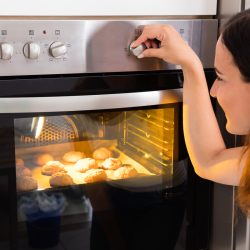You may have noticed that your oven has a vent on the top or back. But why is it there? Let's take a look at the purpose of an oven vent.
An oven vent is designed to draw the hot air and smoke away from your kitchen, preventing heat buildup and potential fire hazards. It helps to keep your kitchen cooler while cooking as well as reducing odors and irritants in the air. In some ovens, a fan also helps circulate the air inside the oven to help ensure more even cooking temperatures throughout.
By understanding the oven vent's purpose, you can ensure your oven is working safely and efficiently. In this article, we will take a closer look at why ovens have vents. In addition, we will answer other frequently asked questions about oven components, so read on!
What Do The Vents On An Oven Do?
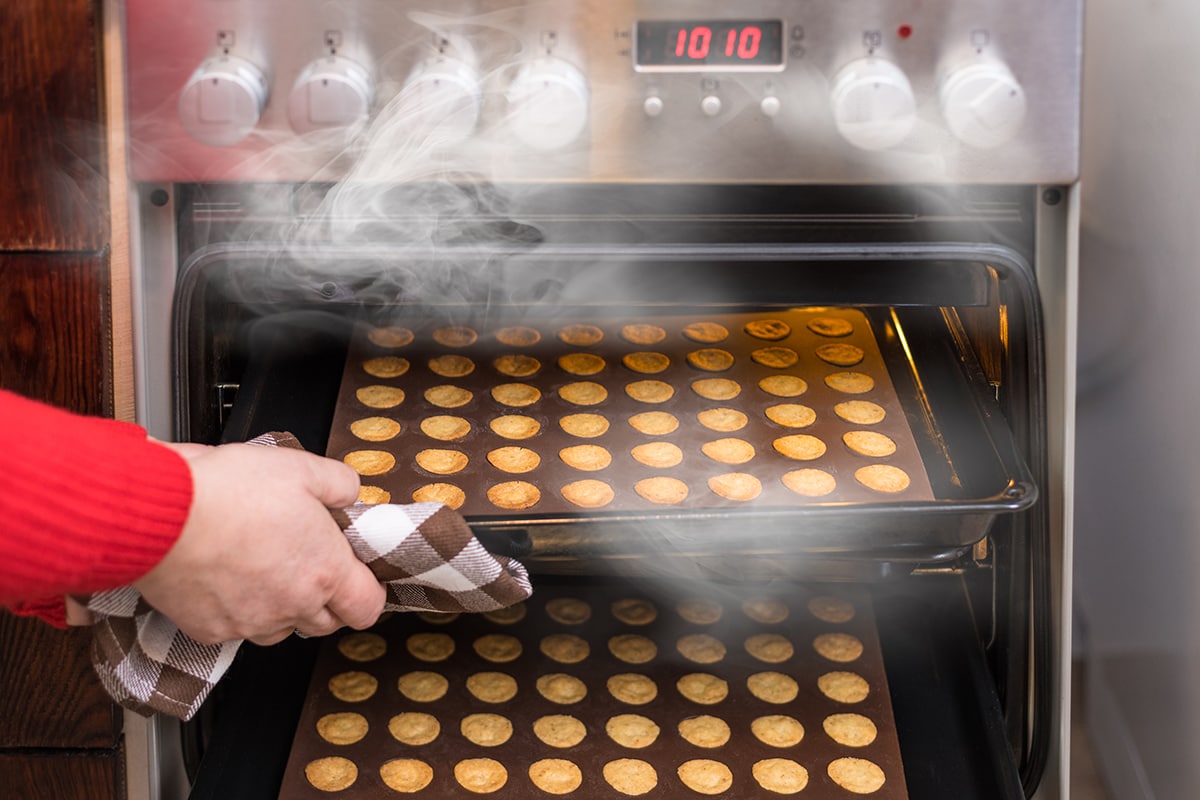
To better understand why ovens have vents, let's talk about how an oven works. When you turn on your oven, the heat from the element inside is then transferred to a metal cavity surrounding it. This hot air is then pushed out through the vent by natural convection.
The vent also helps to move smoke and excess moisture away from your kitchen, reducing unpleasant odors and keeping dust particles at bay. In addition, this allows more air to enter the oven cavity, ensuring more even temperatures throughout.
Moreover, oven vents are important for ensuring that your kitchen is kept cool and comfortable while you're cooking. This helps to reduce the risk of heat buildup, which can be dangerous in some cases.
Typically the oven vents are located at the top or back of the oven, depending on the model. Some ovens also have a fan that helps circulate the air inside for more even temperatures. In some cases, you may also find an exhaust fan to help draw out smoke and moisture faster.
The vents in your oven are an important component, so make sure they're always free of any obstructions. This will help ensure that your oven is working as efficiently and safely as possible.
If the oven vent is blocked, it can cause uneven cooking and potential fire hazards. Also, make sure to clean the vent filters regularly to avoid dust buildup.
Oven vents can also be blocked by overloading the oven. For example, if you are baking two trays of cookies, the air will not be able to flow evenly. Be sure to leave enough space for air to circulate around the food and pans before you turn on your oven.
How Often Should I Clean My Oven?
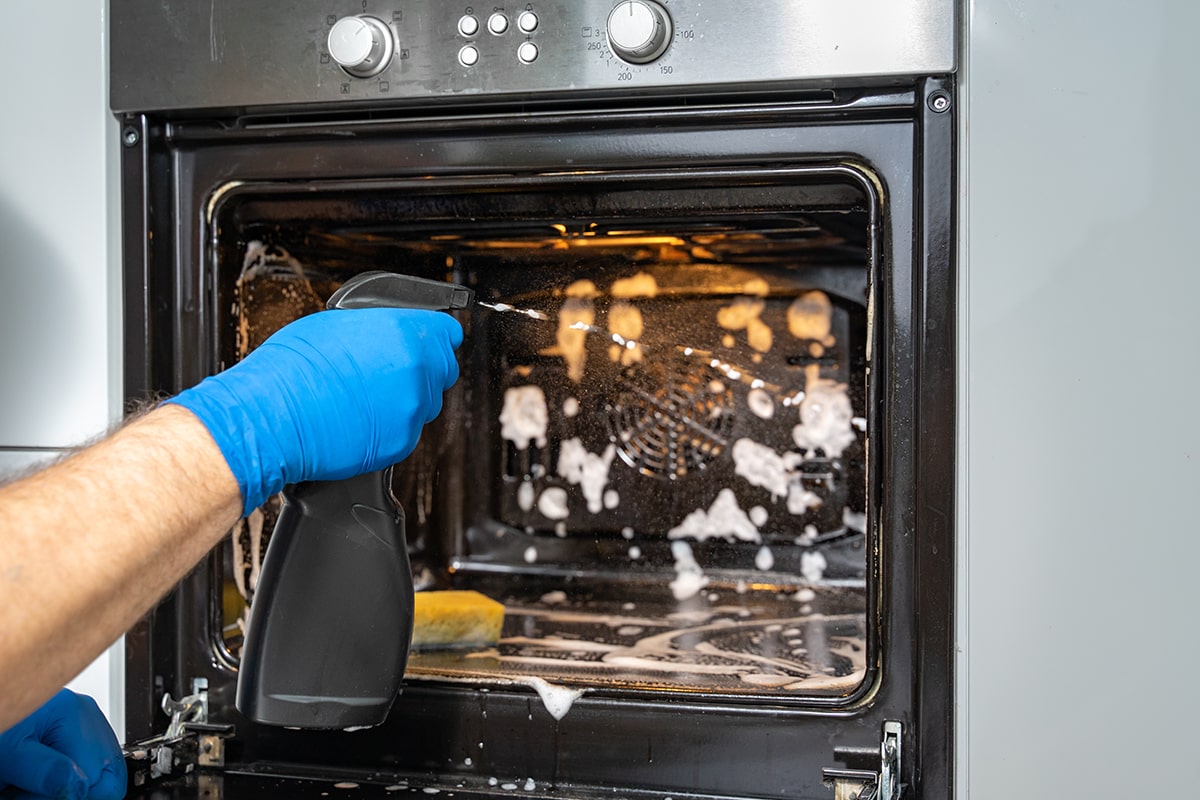
Oven vents aren't the only component that requires regular cleaning and maintenance. In general, you should clean your oven at least once every three months.
It's important to remove any crumbs or residue from the bottom and sides of the oven cavity to help minimize smoke production while cooking. This can be done easily by wiping down the interior with warm soapy water or an all-purpose cleaner.
You should also clean the oven racks, vent filters, and door seal in between uses. This will help ensure your oven performs at its best and reduce the risk of fire hazards.
If your oven has a self-cleaning mode, you can use this to help simplify the cleaning process. However, keep in mind that these cycles often run at very high temperatures and should only be used when necessary.
Before you use the self-cleaning mode, be sure to do a thorough cleaning of the oven interior first. This will help reduce the amount of smoke and odors produced during the cycle.
What Happens If I Don't Clean My Oven?
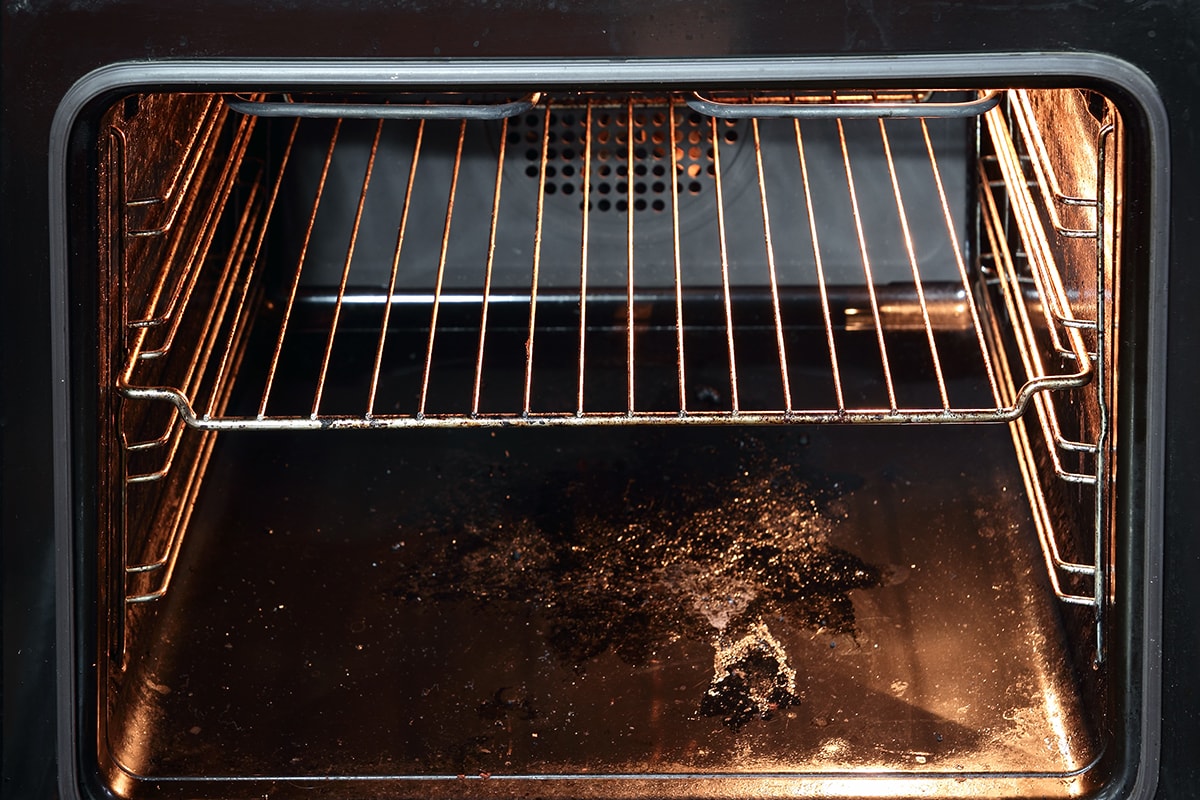
There are some potential consequences for not cleaning your oven.
Firstly, if you don't clean your oven regularly, it can cause poor performance and uneven cooking temperatures. This is because the dirt and debris buildup can block the vent and make it difficult for air to circulate.
In addition, not cleaning your oven could increase the risk of fire hazards due to the accumulation of grease and fats. It is important to wipe down the oven cavity, racks, and filters regularly to minimize these risks.
Finally, not cleaning your oven can result in a buildup of smoke, odors, and dust particles that could affect your health or the quality of your food. This is why it is important to keep your oven clean and free of any obstructions.
Should I Turn On The Vent When Using The Oven?
In addition to the internal vent in an oven, most homes also have a hood vent that helps draw out smoke and odors. For example, if you are cooking something on the stovetop, it is recommended to turn on the hood vent to help reduce smoke and odors.
This may also be the case when baking something with a strong odor. For example, it is best to turn on the vent to help reduce the smell of burnt sugar or onions.
In case you don't have an exhaust fan or hood vent, make sure to open a window or door in the kitchen to help draw out odors. This will help keep your home smelling fresh and reduce excess smoke.
Will A Blocked Vent Cause An Oven To Overheat?
If your oven vent is blocked, it can cause the oven to overheat. This is because the air won't be able to circulate properly and will build up inside the cavity. Overheating can result in uneven cooking and even damage to your oven.
If your oven vent is free and clear of obstruction, the overheating could be due to something else. Let's take a look at them below:
Failing Thermostat
If your oven thermostat is faulty, then it won't be able to regulate the temperature accurately. This can cause the oven to overheat and shut off unexpectedly.
It could be the thermostat bulb that needs to be replaced or the wiring needs to be checked. The thermostat bulb tells the oven when to turn it on and off based on the temperature. If the thermostat bulb is faulty, then the oven could continue to stay on even when it is not needed.
Faulty Element
If the oven element is faulty, then it can also cause your oven to overheat. If the element starts to fray or break down, it could cause a short circuit and put too much strain on the heating mechanism. This will cause the temperature to rise quickly, resulting in overheating.
In some cases, the element may need to be replaced or repaired if it is damaged beyond repair. If you suspect that there is an issue with your oven's heating element, then it is best to contact a professional for assistance.
Loose Or Damaged Wire
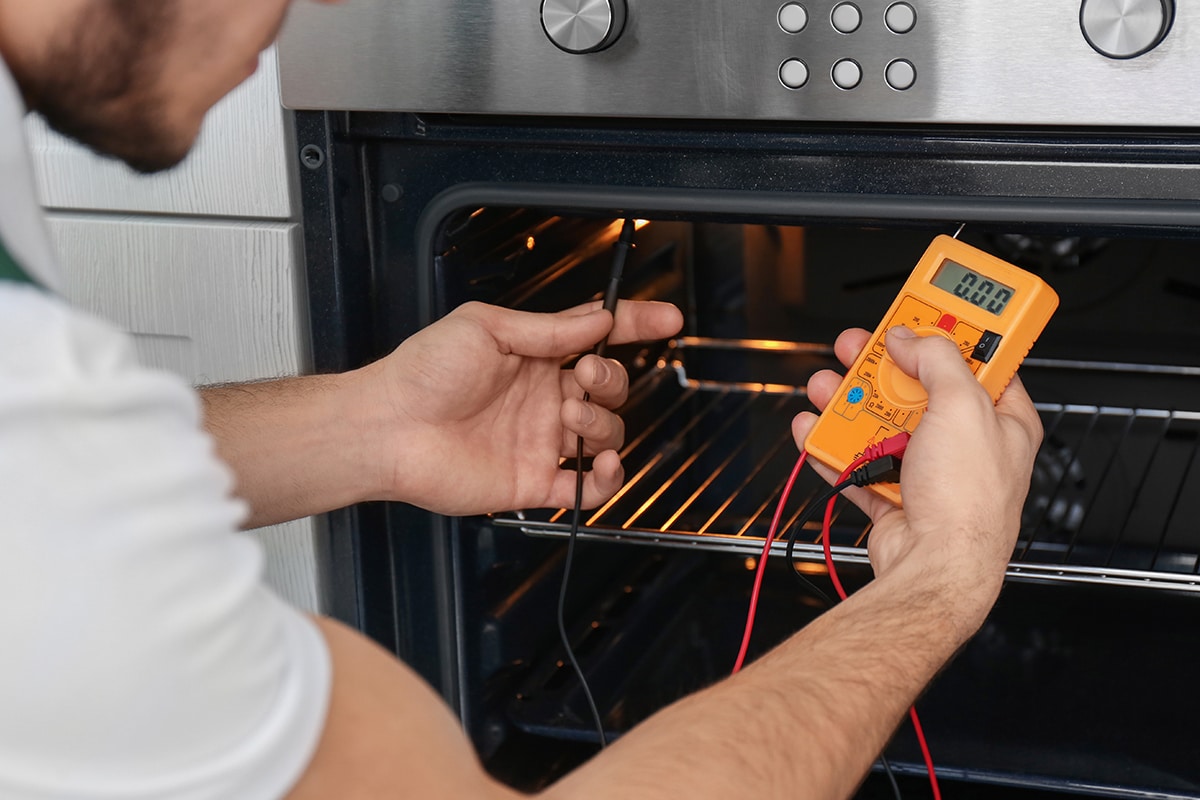
If there is a loose or damaged wire in your oven, this can also cause it to overheat and shut off unexpectedly.
It is important to check the wiring regularly and make sure all connections are secure. If you find any broken wires, contact an oven repair professional to fix the issue before it causes more damage.
Faulty Oven Fan
If the oven fan isn't circulating air properly, this can also cause the oven to overheat. The fan helps keep the heat moving around the oven cavity and prevents hotspots from forming. If the fan isn't working properly, the heat won't be evenly distributed, resulting in an overheating oven.
In this case, it is best to contact a professional to diagnose and repair the issue with your fan.
How Do You Know If Your Oven Is Overheating?
If you are unsure if your oven is overheating, there is a way to test it. First, set your oven to the desired temperature.
Then use a heat-resistant oven thermometer to measure the internal temperature. If the oven thermometer reads noticeably higher than the temperature you set, then your oven is overheating.
From that point, you have two choices: either contact a professional to service your oven or do the troubleshooting yourself. If you choose to troubleshoot the issue yourself, start with the inexpensive and simple solutions first and make sure to take safety measures as you go.
For example, start with a deep cleaning of the oven cavity and make sure the vent is not blocked. Depending on your experience with ovens, you may want to call a professional if the problem persists.
Final Thoughts
As you can see, oven vents play an important part in the function of your oven. Ensure that it isn't blocked so your oven doesn't overheat. Additionally, check the other components regularly to make sure they are in working order and replace any parts if needed.
Made it to the end? Here are other articles you might find helpful:
Which Oven Rack Is Hottest? [And Which Cooks Food The Fastest?]
Can You Use Oven Cleaner On A Stove Top?
Can I Use Oven And Stove At The Same Time? [How Hot Do Each Get?]

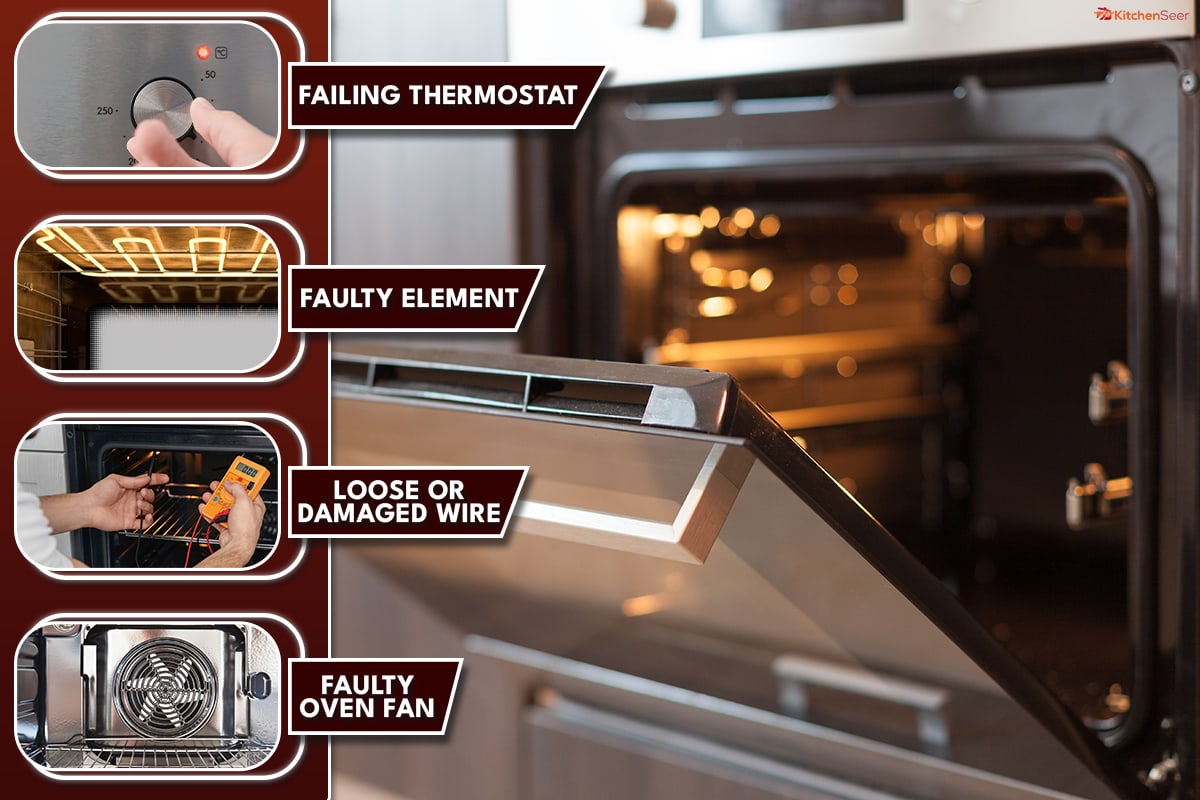
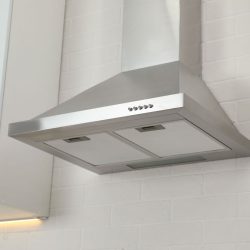
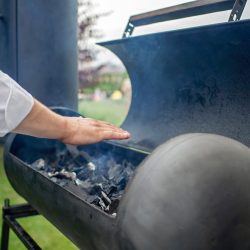
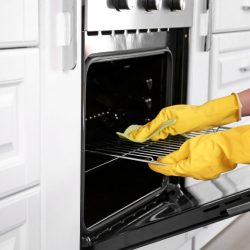

![Astonished Woman Standing In Front Of Burning Oven With Smoke Around Kitchen. - Why Is My Oven Smoking While Preheating? [& How To Fix It?]](https://kitchenseer.com/wp-content/uploads/2023/03/Astonished-Woman-Standing-In-Front-Of-Burning-Oven-With-Smoke-Around-Kitchen.-Why-Is-My-Oven-Smoking-While-Preheating-How-To-Fix-It-250x250.jpg)
